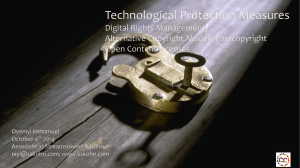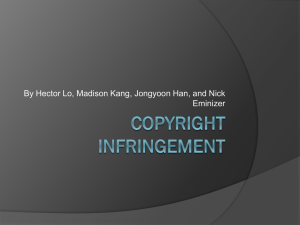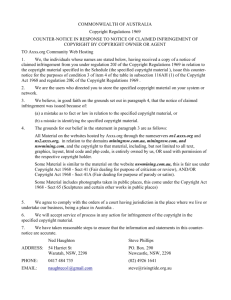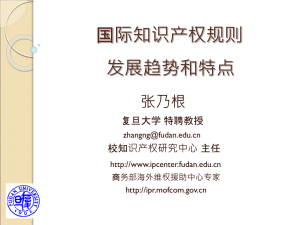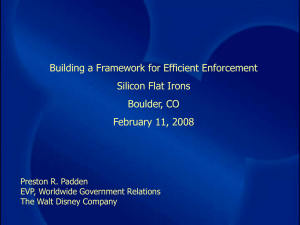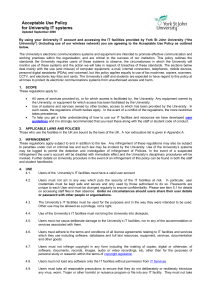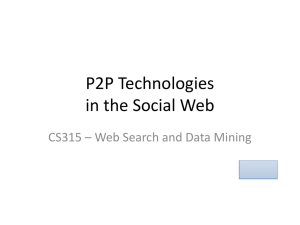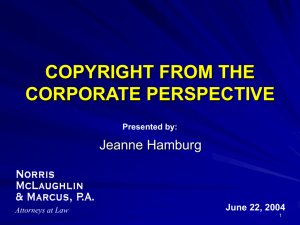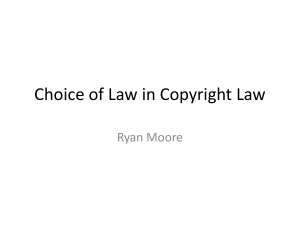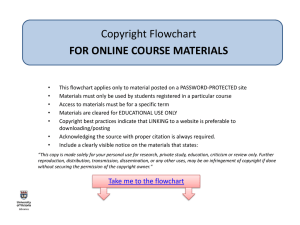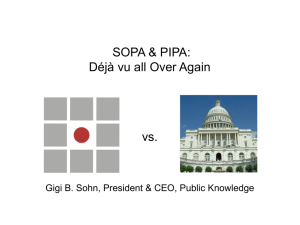Implementation and enforcement: main conclusions of the VIIth
advertisement
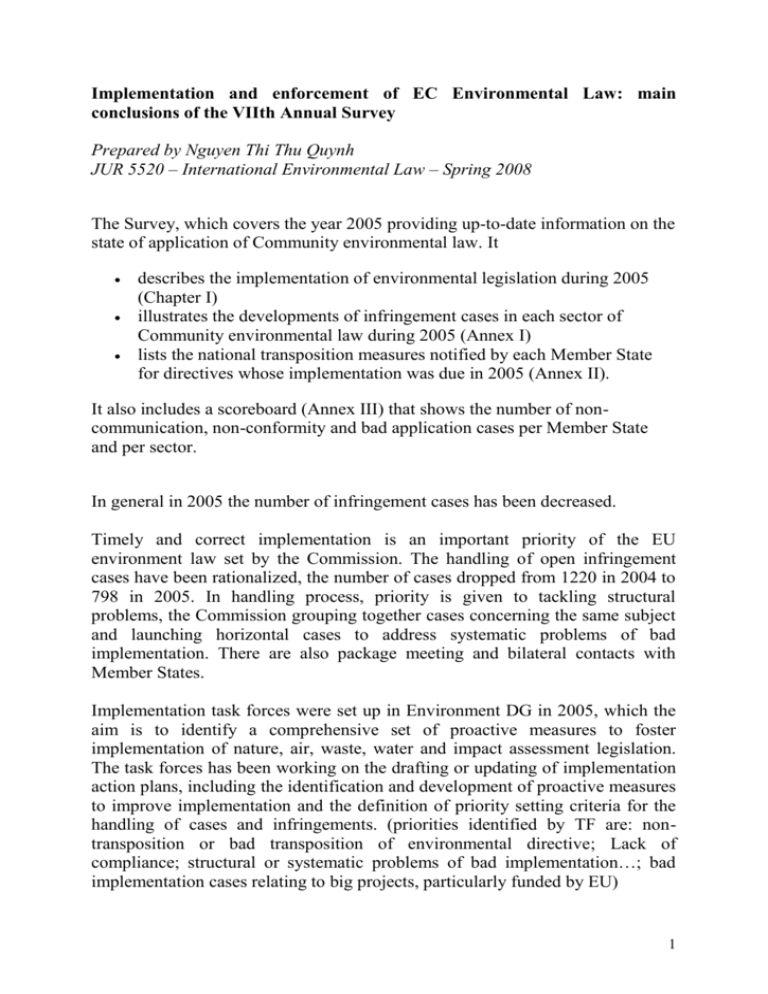
Implementation and enforcement of EC Environmental Law: main conclusions of the VIIth Annual Survey Prepared by Nguyen Thi Thu Quynh JUR 5520 – International Environmental Law – Spring 2008 The Survey, which covers the year 2005 providing up-to-date information on the state of application of Community environmental law. It describes the implementation of environmental legislation during 2005 (Chapter I) illustrates the developments of infringement cases in each sector of Community environmental law during 2005 (Annex I) lists the national transposition measures notified by each Member State for directives whose implementation was due in 2005 (Annex II). It also includes a scoreboard (Annex III) that shows the number of noncommunication, non-conformity and bad application cases per Member State and per sector. In general in 2005 the number of infringement cases has been decreased. Timely and correct implementation is an important priority of the EU environment law set by the Commission. The handling of open infringement cases have been rationalized, the number of cases dropped from 1220 in 2004 to 798 in 2005. In handling process, priority is given to tackling structural problems, the Commission grouping together cases concerning the same subject and launching horizontal cases to address systematic problems of bad implementation. There are also package meeting and bilateral contacts with Member States. Implementation task forces were set up in Environment DG in 2005, which the aim is to identify a comprehensive set of proactive measures to foster implementation of nature, air, waste, water and impact assessment legislation. The task forces has been working on the drafting or updating of implementation action plans, including the identification and development of proactive measures to improve implementation and the definition of priority setting criteria for the handling of cases and infringements. (priorities identified by TF are: nontransposition or bad transposition of environmental directive; Lack of compliance; structural or systematic problems of bad implementation…; bad implementation cases relating to big projects, particularly funded by EU) 1 Legal mechanisms Under article 226 and 228 of the Treaty the Commission can initiate infringement proceedings against MS for failure to respect their obligations under Community law. In 2005 the Commission issued 141 opinions and brought 42 cases against MS. With regard to non-communication cases, the Commission pursues as rapidly as possible to achieve national legislation adopted quickly. With regard to non-conformity, the Commission use an approach of strategic annual conformity checking by outside legal experts. In annexes the Commission provide statistics about infringement cases by sectors, states, etc… Ex, by 31 Dec 2005 Open infringement in Air sector accounted for 13.1% (64 cases), Impact 15.1% (74), Nature 23.7% (116), Waste 22.5% (110), Water 14.7% (72), Others 10.8%(53) EU10 With regard to new 10 EU MS, the Commission organized several ad hoc meeting with representatives of those countries to exchange preliminary views on environmental sector where the correct transposition and implementation of EU environmental directive has proven to be more problematic. In formal meetings with NGOs were also held. Non-legal instruments and initiatives to improve implementation The 2002 Communication with the work is focusing on preventing infringement by improving cooperation between the Commission services and the competent authorities of the MS. This non-legal instrument includes the production of interpretation and guidance documents for many piece of legislation. There are also Environment Policy Review Group (EPRG) providing opportunities for the heads of MS Environment Ministries to exchange vies on key topics of current interest in the environmental domain. The discussion looked at innovative approaches to implementation as well as best practices to ensure the effective enforcement of legislation. Another body that is the European of Judges for the Environment which aims to promote the implementation and enforcement of national, European and international environmental law from the sustainable development perspective. The main objective of the Forum are to share experience on judicial training and 2 on environmental case law and to contribute to the better implementation and enforcement of international, European and national environmental law. Implementation networks Informal implementation networks were established, consisting of European regulators and inspectors concerned with the implementation and enforcement of environmental law. The core activities include the exchange of information and experience on the implementation and enforcement of existing EU environmental legislation and the development of common views on the coherence and practicality of this legislation. Petitions and complaints Petitions to the European Parliament and complaints help the Commission to detect the violations of Community law by MS. Better regulations and thematic strategies To ensure better implementation, the Commission is more strategic in its approach, in stead of looking into individual pollutants or specific economic activities, now the Commission focuses on 7 themes (7 thematic strategies for environment aiming to modernising environmental policy and legislation) that are: Air, Waste prevention and recycling, Conservation and Protection of marine environment, Natural resources, Urban Environment, Soil protection and Pesticides. In addition, the Commission has also committed to improving the lawmaking process by assessing the impacts of new proposals, holding public consultations and ensuring that policy options are suitable for effective implementation on the ground. 3
